Cambridge University's Titan Arum 'rotten flesh' flower blooms
- Published
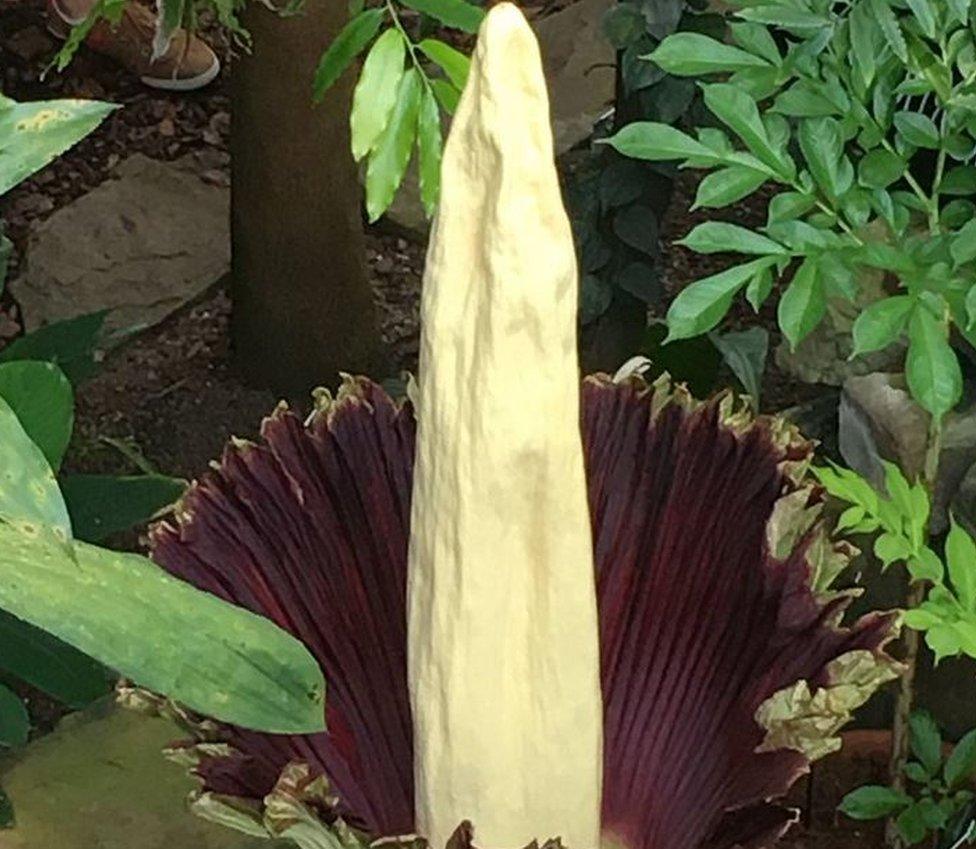
The flower emits a smell akin to rotting flesh to attract pollinators
A flower which emits a stench similar to rotting flesh has finally bloomed.
The Titan Arum at Cambridge University Botanic Garden has attracted hundreds of visitors since threatening to bloom a week ago.
Known as the "corpse flower", the specimen last bloomed in 2004, although its sister plant flowered in 2015.
They emit their nasty smell to attract pollinators and are particularly pungent at night, when they heat themselves up to about 40C (104F).
The plant, named Titus after a public vote, is one of two Amorphophallus titanum at the garden. The other one, named Tiny, flowered in July 2015 - the first time one had bloomed at the garden in 11 years.
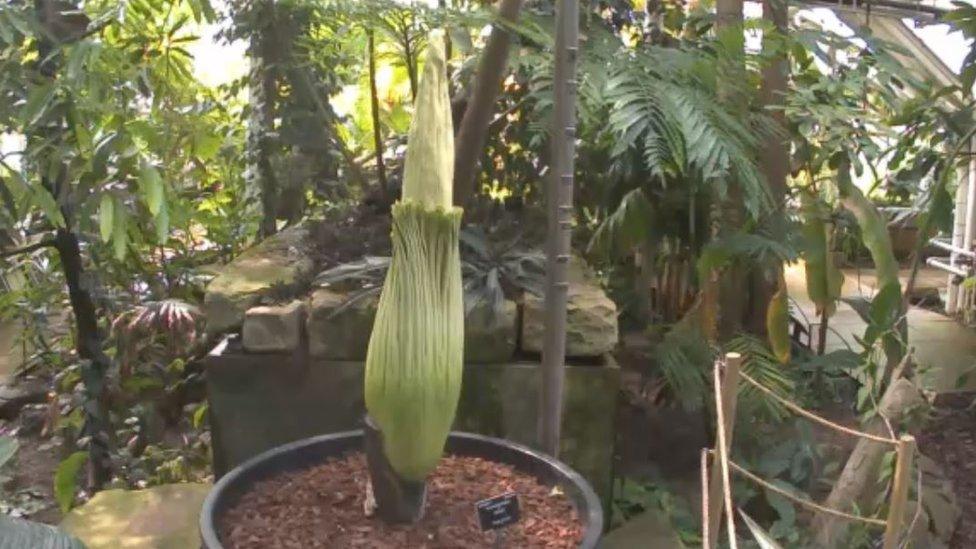
The garden announced last week that its Titan Arum looked set to bloom
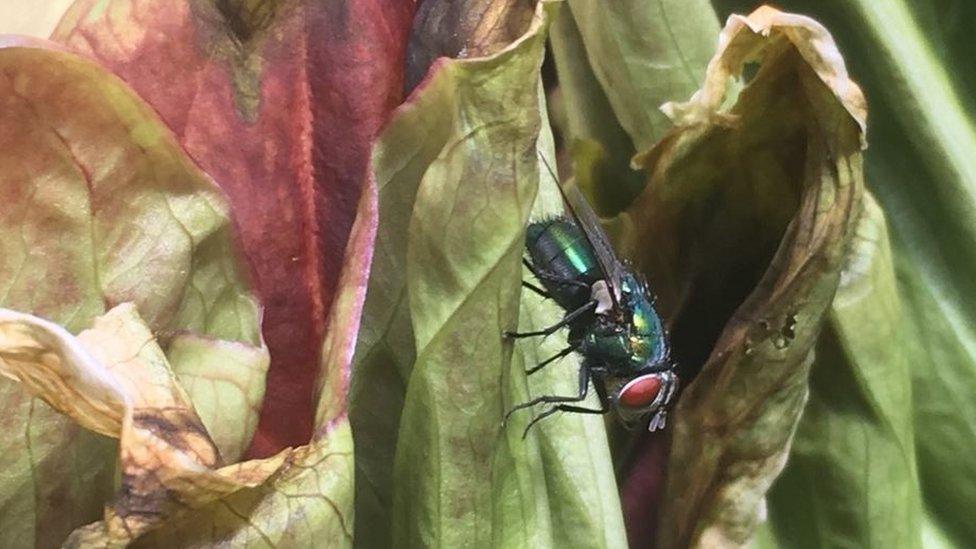
On Monday afternoon the garden announced the plant was flowering and "the flies know it"
The plant's odour - variously described as akin to the scent of rotting flesh, rotten eggs or dirty laundry - can spread across vast distances in its native Sumatra to lure pollinators, thought to be carrion beetles and blowflies.
Amorphophallus titanum has the largest unbranched inflorescence (flower structure) in the world.
Its common name - Titan Arum - was coined by Sir David Attenborough as a literal translation of the Latin name was deemed "too rude" for TV audiences, according to the Botanic Garden.

The flower was about halfway open at 18:00 - it is about 136cm tall (4ft 5in)
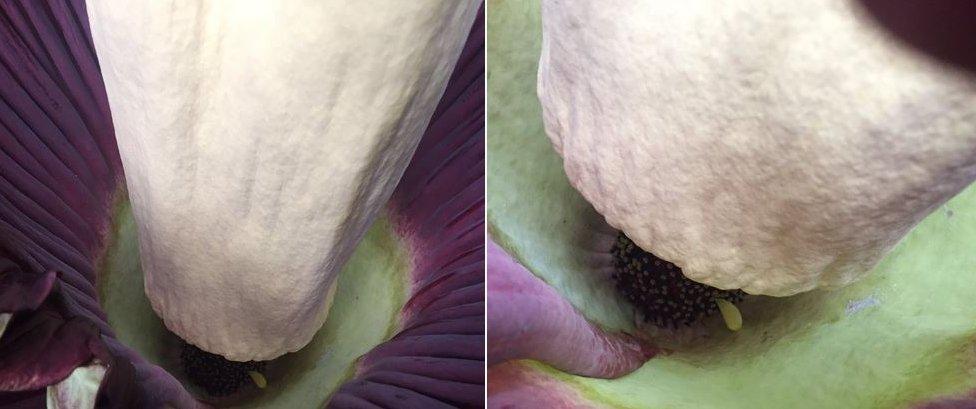
Inside the plant, the real flowers at the base of the spadix will be pollinated by hand on Monday night, the university said

Crowds were still queuing out the door as the garden prepared to close late on Monday night
The plants are categorised as a vulnerable species by the International Union for the Conservation of Nature.
The Botanic Garden will be open until 22:00 BST on both Monday and Tuesday nights before the flower begins to die away.
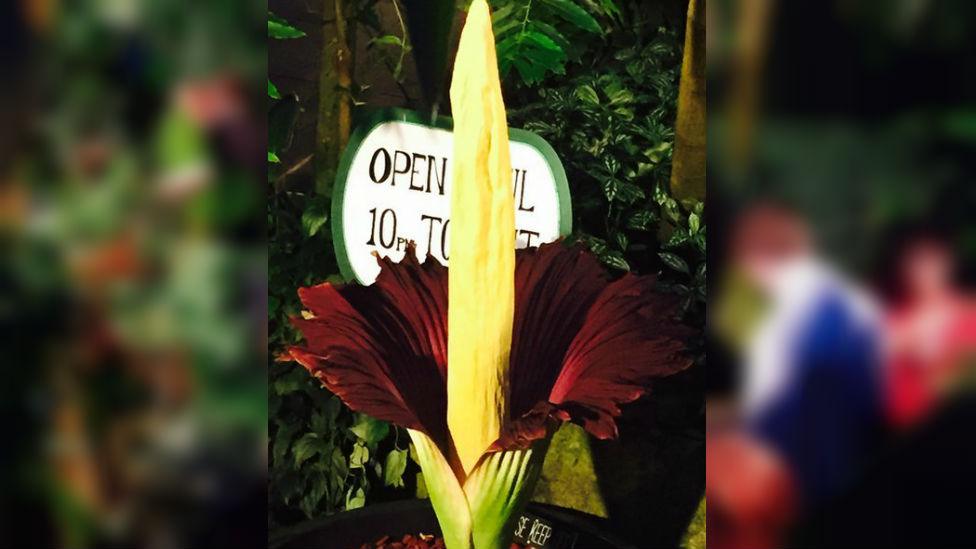
The other Titan bloomed in 2015 and attracted about 11,000 visitors
- Published23 July 2015
